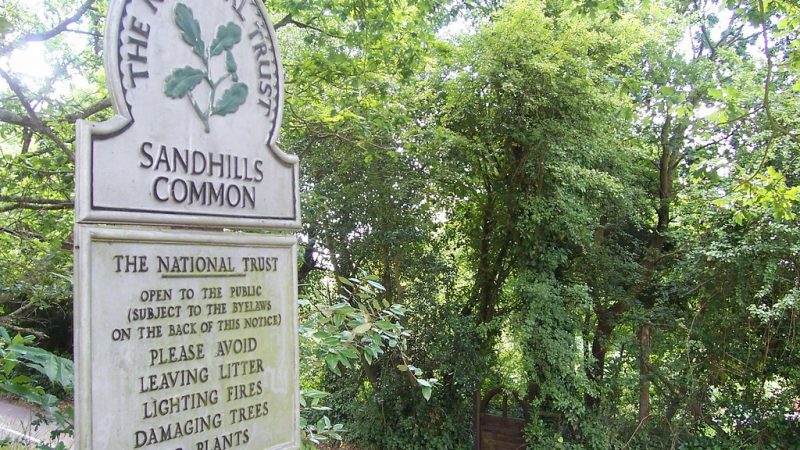Politicians must prioritise tackling the climate and nature crisis in election run-up, says charity

Changes in climate and unpredictable weather patterns are causing “chaos” for nature, the National Trust has warned, as it calls on politicians to prioritise tackling the climate and nature crisis ahead of the elections.
At the end of what is predicted to be the warmest year on record, the governing body of protected sites is “sounding the alarm” for UK wildlife in its audit report which has laid out an extensive list of species affected by climate change in 2023.
Warmer year-round temperatures have affected the traditional seasonal shifts, which has had a serious knock-on effect for flora and fauna across the country, the National Trust has highlighted.
From low rainfall causing the river Derwent in the supposedly wettest area of England to dry out for the third consecutive summer, to storm Babet and storm Ciaran battering parts of the country with flooding, the extremes in weather are having serious consequences on habitat and wildlife.
“The shifting weather patterns we’re seeing in the UK, particularly with the warmer temperatures we’re experiencing is continuing to upset the natural, regular rhythm of the seasons, causing stress to wildlife and making it more susceptible to pests and disease,” said Ben McCarthy, Head of Nature and Restoration Ecology at the National Trust.
“This loss of predictability causes chaos for the annual behaviours of animals in particular, but can also impact trees and plants.”
He said that shorter winters could have “devastating” impacts for trees, with cold snaps not proving long enough to kill off diseases. Whilst it can also cause animals to emerge from hibernation prematurely, using up vital energy stores too early.
“It’s these baseline changes that we’re seeing that are really worrying and what we should be taking more notice of, particularly when combined with extreme weather events, which makes things even more challenging,” said McCarthy.
The charity has called on politicians to make tackling the climate and nature crisis a priority, particularly in the lead up to the next election. McCarthy said politicians need to take more action throughout the country in order to protect nature.
“We want to see parties commit to accelerating progress on nature restoration, increase support for nature-based solutions to climate change and to put climate adaptation at the heart of their manifestos, so the UK can be better prepared for the weather extremes we will increasingly experience.”
The National Trust has been working on projects to make the landscape more resilient and adaptable to the shifting seasons, as it warned we must be ready for this “new ‘norm’”.
However it’s not all bad news, as the audit also highlighted some rays of light, with a record-breaking number of the Cornish Chough birds spotted this year, a 60% increase on the last, having previously been extinct in Cornwall.
Beavers in Somerset had their first kits, welcoming in twins and another kit which has grown the beaver community on the Holnicote Estate. And, despite heavy rainfall during storm Babet damaging four of the beavers’ dams, the family were quick to start repairs due to their industrious nature.
Hannah Davenport is news reporter at Left Foot Forward, focusing on trade unions and environmental issues
To reach hundreds of thousands of new readers we need to grow our donor base substantially.
That's why in 2024, we are seeking to generate 150 additional regular donors to support Left Foot Forward's work.
We still need another 117 people to donate to hit the target. You can help. Donate today.



